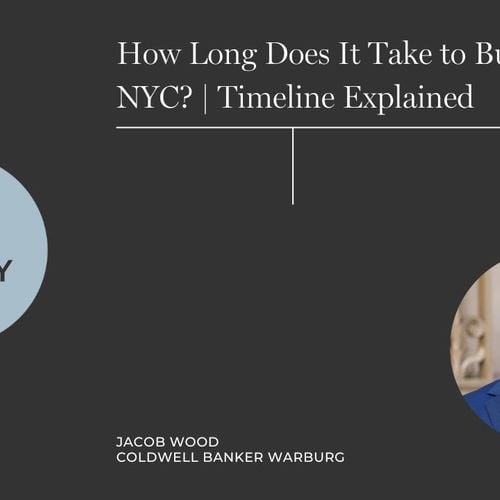How to Disclose Home Liabilities Without Scaring Away NYC Buyers
Every home in New York City is unique. Even in the same building along the same line, each home will have its own intricacies, from view, to light, to renovations. Your home will offer a buyer different reasons to fall in love with it than your neighbor’s, and different potential liabilities that could scare a buyer away if not disclosed effectively. Let’s talk about how best to deal with those liabilities.
There are two common mistakes I see listing agents make when disclosing a home’s liabilities to a buyer. One is to simply not disclose them, and hope that the buyer’s agent and attorney don’t uncover them either—or that it’s done so late in the process that the buyer goes ahead and goes through with the contract anyway. This is usually worse than if the agent had simply stated the issue upfront. It often causes the buyer to feel like they haven’t been dealt with fairly. They often react more negatively to the issue than they would’ve had it been disclosed upfront. This legal overview from Nolo makes clear why upfront disclosure is a seller’s best protection.
The second mistake I see agents make is to blurt out the issue at first contact. I’ve had agents tell me, before I or the buyer even set foot into the home, that the light is “bad,” or that the building isn’t financeable. There are several very effective staging options for low-light homes that largely mitigate the issue, and there’s always a bank willing to finance a building, regardless of the building’s position.
There is a world of difference between “You can’t get a loan in this building… gotta be all cash” and “Because the building is popular with investors, some of the larger, more conservative lenders don’t loan here. So, I’ve had the building approved by a mortgage broker I have a good relationship with. I’m happy to connect you with them if you’re interested.” Now we’ve taken the correct ethical and strategic step of disclosing the issue early, and aren’t throwing cold water on any interest that could be building. Not only does this avoid the risk of deals falling apart at the 90-yard line when the buyer finds out from their attorney an unflattering fact about the building, it buys us credibility and trust.
Brick Underground outlines what NYC sellers are legally required to disclose—and why honesty, handled well, is good business.
Smart Disclosure Is About Framing, Not Hiding
To personalize the issue further, when my wife and I were searching for a new home in Fort Greene, we ended up pulling out of contract negotiation after our offer was accepted, due to having found out that a 200-unit building was going to be built on the lot right behind us, with construction beginning later that year. This was never disclosed by the listing agent. Once I discovered the planned construction via a title search of the adjacent lot, we pulled out of the contract immediately.
The listing agent had better options than hoping she’d be able to take advantage of a buyer. She could’ve highlighted how great the new development would be for the neighborhood, and how it would help property values in the long term. They could’ve avoided the stress I’m sure it caused their seller to have to scramble and find a new buyer after having just agreed to our offer, not to mention earned better karma than trying to sneak by me a couple years of construction and shadows over what would’ve been my new roof deck.
If your home needs a few value-boosting improvements before it hits the market,
If you’d like an analysis of how to overcome your home’s potential liabilities and still sell for a great price, let’s talk more. This is Jacob Wood, your New York City real estate advisor.
Check out this article next

What to Do After You’re In Contract
Let’s discuss what to do once your home is in contract to prep for a seamless closing.As a seller, once we’re in contract, there’s not…
Read Article


